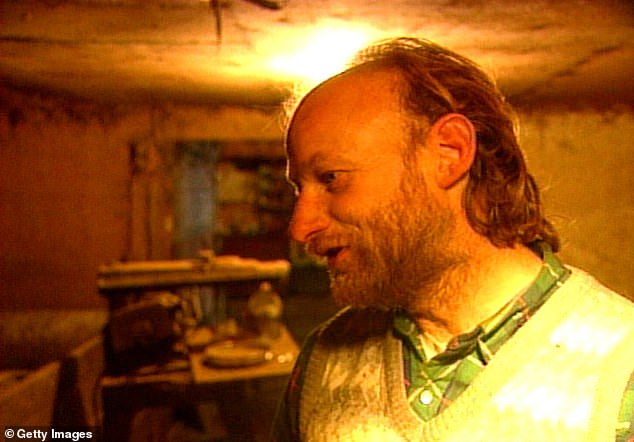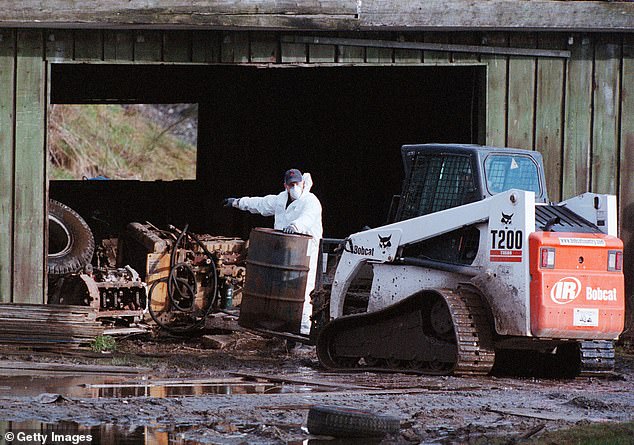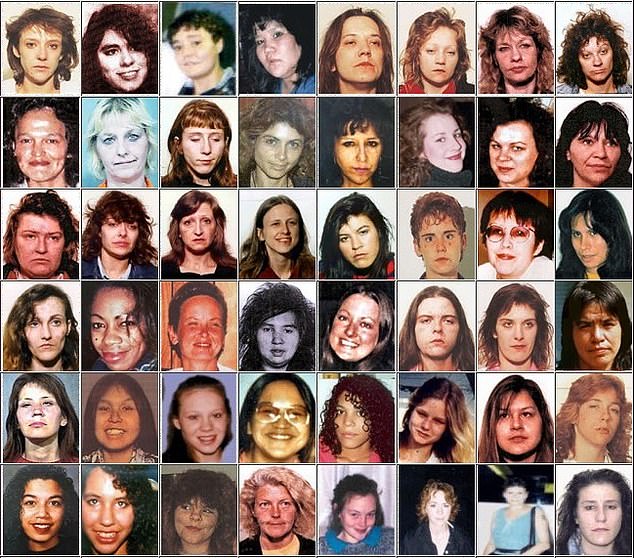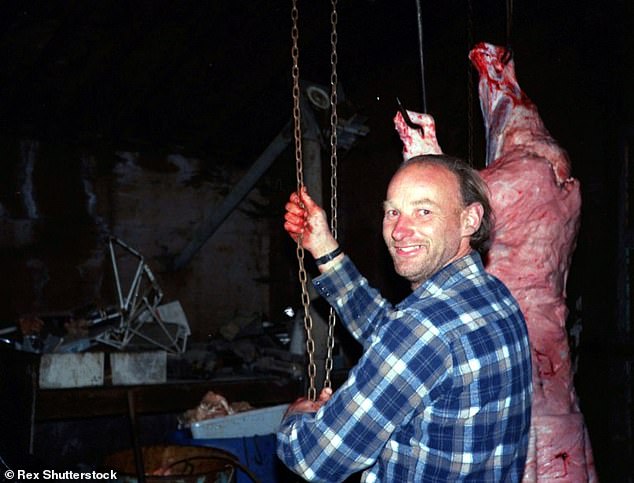Canadian serial killer Robert Pickton has died at the age of 74 after being attacked in prison where he was serving a life sentence.
The notorious killer took female victims to his pig farm during a crime spree near Vancouver in the late 1990s and early 2000s, and fed their bodies to the animals.
The Correctional Service of Canada said Pickton, an inmate at Port-Cartier Institution in Quebec province, died in hospital following injuries sustained in the May 19 assault involving another inmate.
He was one of Canada’s most notorious serial killers and his case made international headlines.
A 51-year-old inmate was being held for the assault on Pickton, police spokesman Hugues Beaulieu said earlier this month.
Canadian serial killer Robert Pickton, who brought female victims to his pig farm during a crime spree near Vancouver in the late 1990s and early 2000s, has died after being assaulted in prison.

Pickton is shown at his trial taking notes nearly two decades ago. He was eventually convicted in 2007 of six counts of second-degree murder.
Robert ‘Willie’ Pickton was convicted of six counts of second-degree murder and sentenced to life in prison in 2007, with a maximum parole ineligibility period of 25 years, after being accused of the murders of 26 women.
Police began searching the Pickton Farm in the Vancouver suburb of Port Coquitlam more than 22 years ago in what would become a years-long investigation into the disappearances of dozens of women from Vancouver’s seedier streets, sex workers and drug addicts. abandoned on the margins of society. .
The remains or DNA of 33 women were found on the farm. Pickton once boasted to an undercover police officer that he had killed a total of 49 women.
During his trial, prosecution witness Andrew Bellwood said Pickton told him how he strangled his victims and fed their remains to his pigs.
Health officials once issued a notice about tainted meat to neighbors who might have purchased pork from Pickton’s farm, concerned that the meat might contain human remains.

Pickton and his brother operated a drinking club frequented by bikers and prostitutes near their pig farm outside Vancouver.

Royal Canadian Mounted Police investigators move debris at a pig farm February 19, 2002 in Port Coquitlam, British Columbia
Cynthia Cardinal, whose sister Georgina Papin was killed by Pickton, said Pickton’s death means she can finally get over her sister’s murder.
“This will bring healing, I won’t say every family, I’ll just say most families,” he said.
‘I’m like – wow, finally. “I can actually move on and heal and I can put this behind me.”
Vancouver police were criticized for not taking the cases seriously because many of those missing were sex workers or drug users.
Canada’s Correctional Service said it was conducting an investigation into the attack on Pickton.
“The investigation will examine all of the facts and circumstances surrounding the assault, including whether policies and protocols were followed,” the service said.
‘We are aware that this offender’s case has had a devastating impact on communities in British Columbia and across the country, including Indigenous people, victims and their families. Our thoughts are with them.’

Dozens of women Pickton, now 74, is suspected of having murdered during his decades of homicidal violence.

Forensic workers collect evidence in the early 2000s at Canada’s largest crime scene, mass murderer Robert Pickton’s pig farm.
Pickton had six confirmed victims: Sereena Abotsway, Mona Wilson, Andrea Joesbury, Brenda Ann Wolfe, Papin and Marnie Frey.
“Today I learned of the death of an inmate at the Port-Cartier Institution,” said Public Safety Minister Dominic LeBlanc.
“At this time, my thoughts are with the families of the victims of this individual’s heinous crimes.”
At the time of Pickton’s sentencing, British Columbia Supreme Court Justice James Williams said it was a “rare case that adequately justifies the maximum period of parole ineligibility available to the court.”


